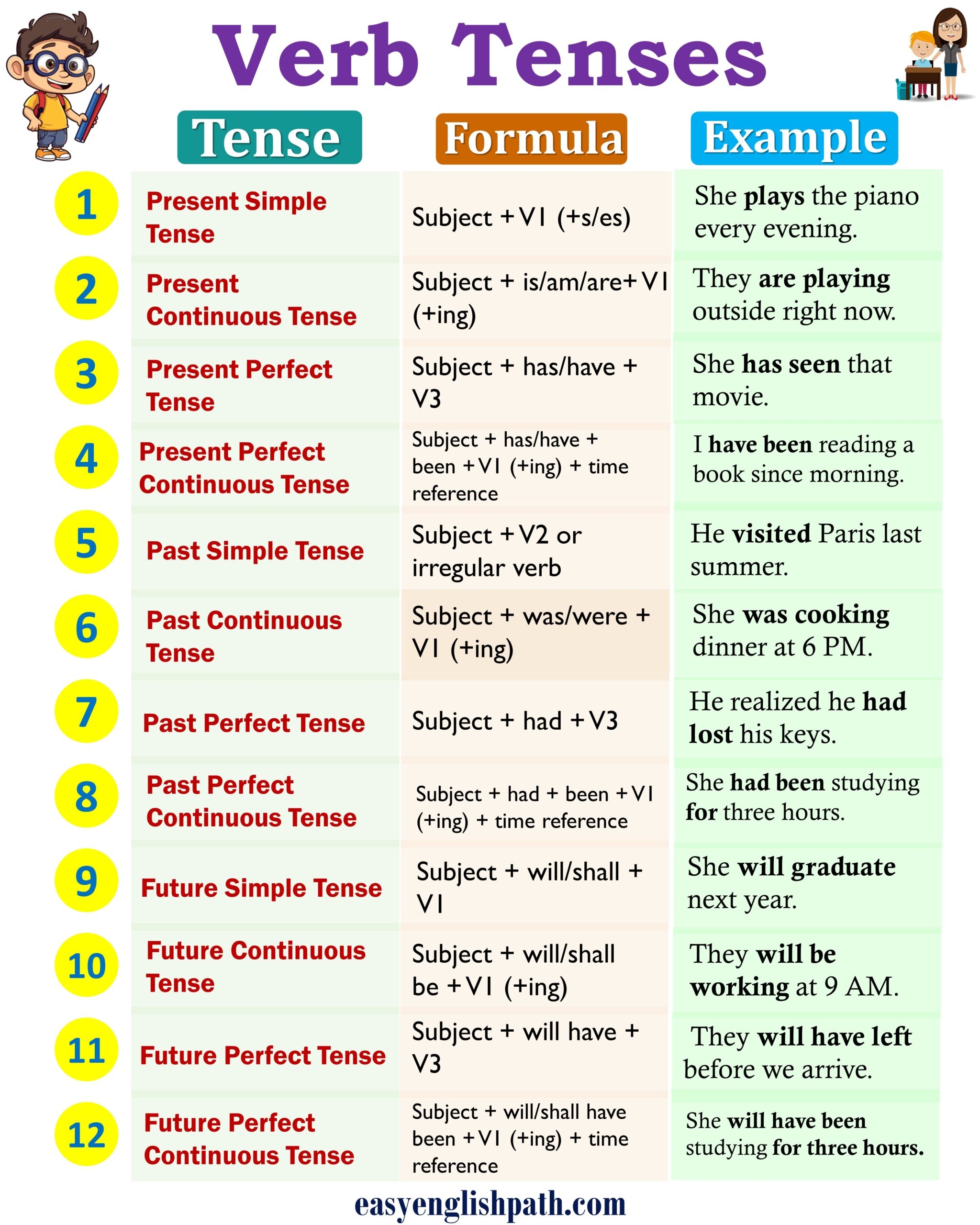Understanding verb tenses is crucial for effective communication. Verbs indicate the time at which an action takes place, whether in the past, present, or future. In English, there are various tenses to express these time frames, with simple tenses being the most basic forms.
The simple present tense is used to describe actions that are habitual, factual, or general truths. It is formed by adding “-s” or “-es” to the base form of the verb for third-person singular subjects. For example, “She works in a bank.”
The simple past tense is used to talk about actions that happened in the past and are completed. Regular verbs form the past tense by adding “-ed” to the base form of the verb. For example, “He played basketball yesterday.”
The simple future tense is used to talk about actions that will happen in the future. It is formed by using “will” or “shall” followed by the base form of the verb. For example, “They will visit their grandparents next week.”
It is important to note that irregular verbs have different forms for the past and past participle, so they do not follow the regular “-ed” rule. Examples of irregular verbs in the simple past tense include “go” (went), “eat” (ate), and “see” (saw).
By understanding and using simple verb tenses correctly, you can convey your thoughts and actions clearly in English. Practice using simple present, simple past, and simple future tenses in sentences to improve your language skills and communicate effectively.
In conclusion, mastering simple verb tenses is essential for effective communication in English. Whether describing current habits, past events, or future plans, being proficient in using simple present, simple past, and simple future tenses will enhance your language proficiency and help you express yourself accurately.
